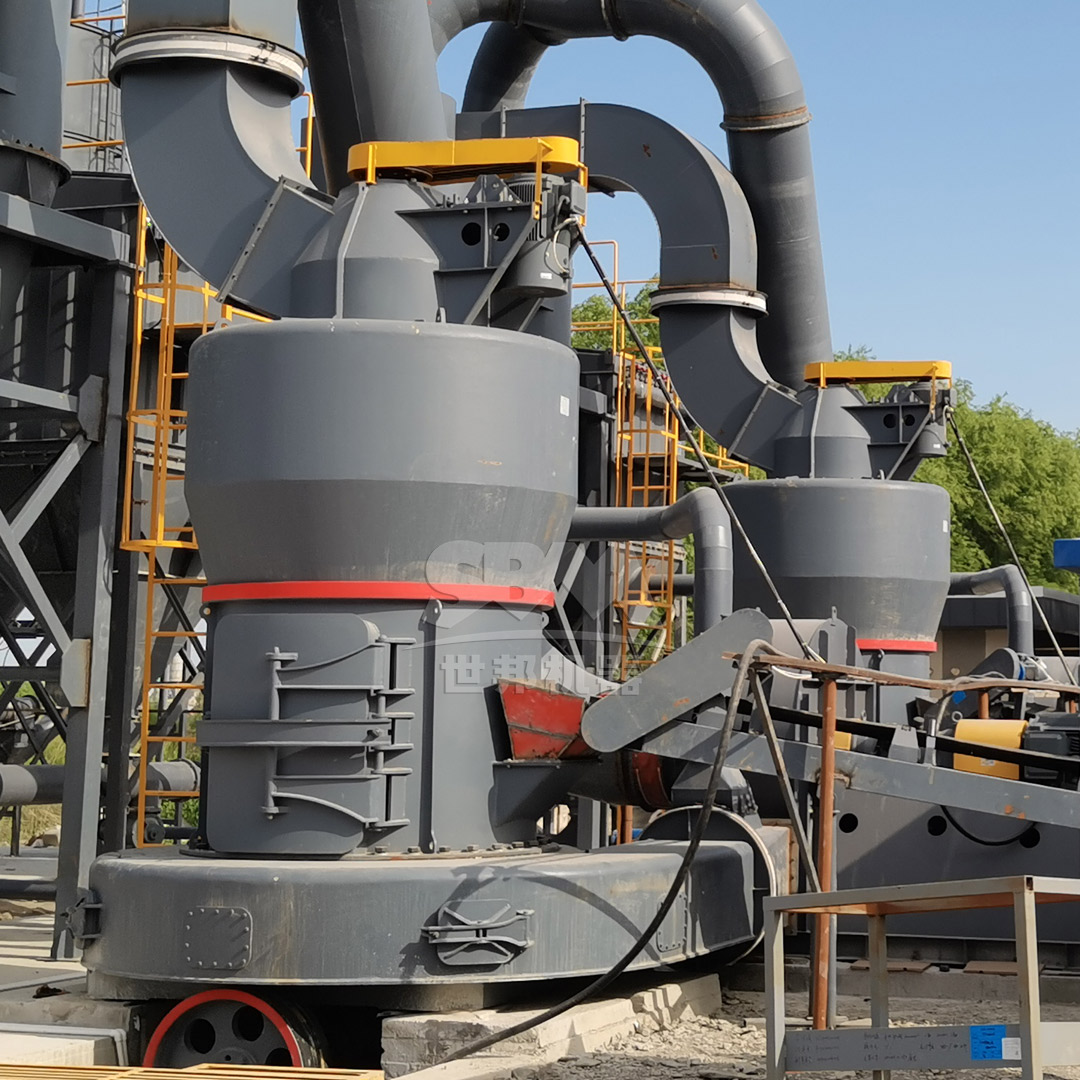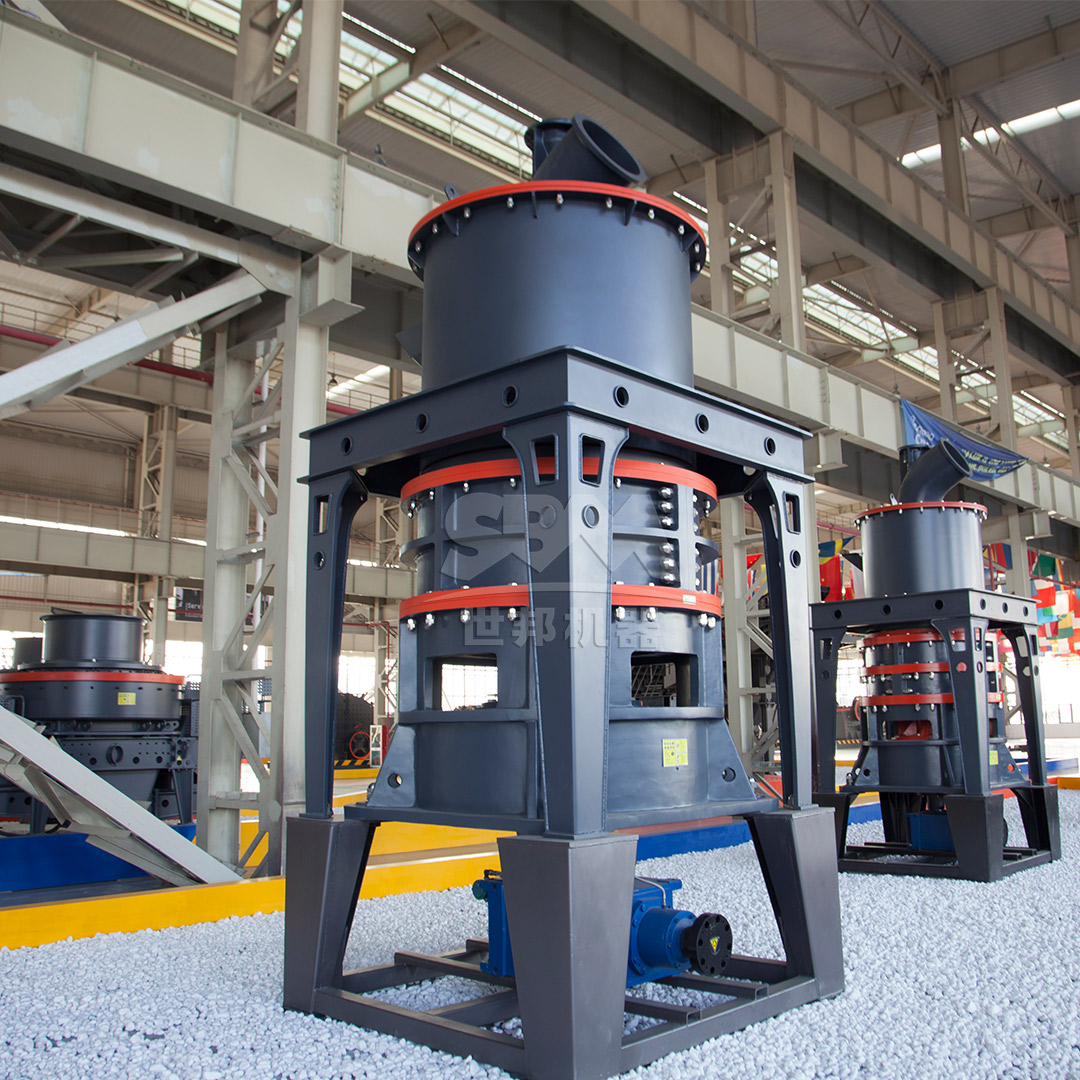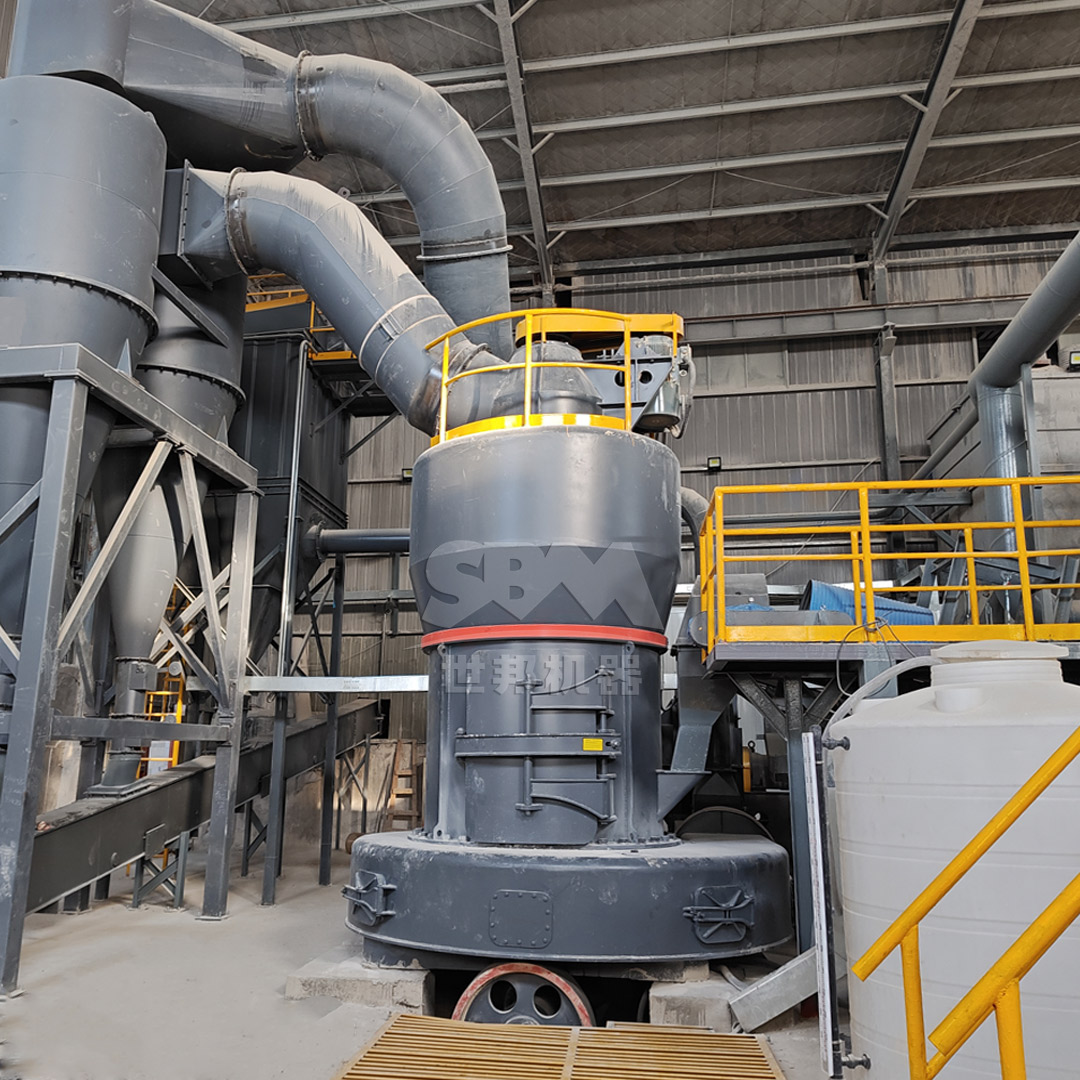In the polymer industry, the demand for high-performance fillers has been steadily increasing as manufacturers seek to enhance material properties while reducing costs. Barite (barium sulfate) has emerged as one of the most valuable mineral fillers due to its exceptional characteristics: high density, chemical inertness, low abrasiveness, and excellent dispersion capabilities. However, the true potential of barite as a polymer filler can only be unlocked through precise ultrafine grinding technology that produces consistent particle size distribution and optimal surface characteristics.
The transformation of raw barite into high-value polymer fillers requires sophisticated milling equipment capable of achieving precise particle size control while maintaining operational efficiency. This article explores the critical role of ultrafine grinding technology in producing barite fillers for polymer applications and examines the technological advancements that make modern barite processing both economically viable and environmentally sustainable.

Particle size distribution is arguably the most critical factor determining the performance of barite as a polymer filler. The ultrafine barite particles, typically ranging from 325 to 2500 mesh (45-5μm), directly influence multiple aspects of polymer composite performance:
Properly ground barite fillers significantly improve the mechanical properties of polymer composites. The fine barite particles act as reinforcement agents, increasing tensile strength, flexural modulus, and impact resistance. When particle size is optimized, barite fillers create a more homogeneous composite structure, reducing stress concentration points and preventing crack propagation.
In applications where surface quality is paramount, such as automotive parts and consumer goods, the fineness of barite fillers directly affects the final product’s appearance. Ultrafine barite particles below 10μm ensure smooth surface finishes, reduced visible particulates, and enhanced paint adhesion properties.
The particle size distribution of barite fillers influences polymer processing behavior. Controlled fine particles improve melt flow characteristics, reduce injection molding pressures, and minimize equipment wear. Narrow particle size distributions prevent segregation during processing and ensure consistent filler distribution throughout the polymer matrix.
Among the various grinding technologies available, the SCM Ultrafine Mill has proven particularly effective for producing high-quality barite fillers for polymer applications. This advanced milling system represents a significant technological leap forward, specifically designed to meet the demanding requirements of modern mineral processing operations.

The SCM Ultrafine Mill incorporates several innovative features that make it ideally suited for barite processing:
High-Efficiency Grinding Mechanism: The mill employs a unique grinding principle where material is subjected to multiple grinding actions between the roller and grinding ring. This multi-layer grinding approach ensures progressive size reduction while minimizing overgrinding and energy waste. The result is a highly efficient process that maintains consistent product quality throughout extended operation periods.
Precision Classification System: At the heart of the SCM Ultrafine Mill’s performance is its advanced vertical turbine classifier. This system provides precise particle size control, enabling operators to maintain tight tolerances on final product specifications. The classifier’s ability to make sharp cuts ensures that no coarse particles contaminate the final product, which is crucial for polymer applications where even minor inconsistencies can compromise material performance.
Energy Efficiency: Compared to traditional grinding systems, the SCM Ultrafine Mill demonstrates remarkable energy efficiency, achieving approximately 30% reduction in power consumption while delivering twice the output of conventional jet mills. This efficiency translates to significant operational cost savings, making high-quality barite filler production more economically sustainable.
| Model | Processing Capacity (ton/h) | Main Motor Power (kW) | Output Fineness (mesh) | Recommended Application |
|---|---|---|---|---|
| SCM800 | 0.5-4.5 | 75 | 325-2500 | Pilot plants, Specialty polymers |
| SCM1000 | 1.0-8.5 | 132 | 325-2500 | Medium-scale production |
| SCM1250 | 2.5-14 | 185 | 325-2500 | Standard industrial applications |
| SCM1680 | 5.0-25 | 315 | 325-2500 | Large-scale polymer production |
The SCM Ultrafine Mill features exceptional durability characteristics specifically beneficial for barite processing. The grinding components utilize special wear-resistant materials that significantly extend service life, reducing replacement frequency and maintenance costs. The innovative bearing-free screw grinding chamber design enhances operational stability and eliminates common failure points associated with conventional milling systems.
The quality of barite fillers produced through ultrafine grinding directly correlates with the performance characteristics of the resulting polymer composites. Understanding these relationships is essential for optimizing both the grinding process and the final application.
Barite’s high specific gravity (4.3-4.6) makes it particularly valuable for applications requiring density modification. In polymer composites, precisely ground barite enables manufacturers to achieve specific weight targets without compromising other material properties. The consistent particle size distribution achieved through SCM ultrafine grinding ensures predictable density outcomes and eliminates settling issues during polymer processing.
Barite’s inherent chemical inertness makes it an ideal filler for polymers exposed to aggressive environments. The ultrafine grinding process preserves barite’s chemical stability while creating particles that integrate seamlessly with polymer matrices. This results in composites with enhanced resistance to acids, alkalis, and various solvents, expanding application possibilities in chemical processing equipment, marine environments, and automotive components.
Barite-filled polymers exhibit improved thermal stability and reduced thermal expansion coefficients. The fine barite particles act as heat sinks, distributing thermal energy more evenly throughout the composite. Additionally, barite’s electrical insulation properties make it valuable for wire and cable insulation applications, where consistent particle size ensures uniform dielectric characteristics.
For operations requiring broader particle size ranges or processing larger initial feed sizes, the MTW Series Trapezium Mill offers an excellent complementary solution. This robust milling system extends processing capabilities while maintaining the quality standards required for premium polymer fillers.

The MTW Series incorporates several technological innovations that benefit barite processing operations:
Anti-Wear Shovel Design: The combination shovel blade system significantly reduces maintenance requirements and extends operational intervals. The curved design optimizes material feeding while protecting grinding components from excessive wear.
Optimized Airflow Path: The innovative arc-shaped air channel minimizes energy losses during material transport, improving overall system efficiency. The high-strength protective plates ensure long-term reliability even under continuous operation.
Integrated Gear Transmission: The conical gear transmission system achieves remarkable 98% transmission efficiency while reducing installation footprint and complexity. This streamlined design contributes to lower overall project costs and simplified maintenance procedures.
The MTW Series Trapezium Mill accommodates a wide range of processing requirements, making it suitable for diverse barite applications. With input sizes up to 50mm and output fineness ranging from 30 to 325 mesh, this system provides operational flexibility for operations processing various mineral feedstocks or producing multiple filler grades.
Modern barite processing must address both environmental compliance and economic sustainability. Advanced milling technologies play a crucial role in achieving these dual objectives.
The SCM Ultrafine Mill incorporates sophisticated pulse dust collection technology that exceeds international emission standards. The fully enclosed negative pressure operation prevents dust leakage, protecting both the work environment and surrounding areas. This environmental performance is increasingly important as regulatory requirements tighten globally.
With noise levels below 75dB, the SCM Ultrafine Mill creates a significantly improved working environment compared to traditional grinding equipment. The integrated soundproofing chamber design demonstrates the comprehensive approach to environmental stewardship that modern operations require.
The combination of reduced energy consumption, extended component life, and minimized maintenance requirements creates compelling economic advantages for operations utilizing advanced barite grinding technology. The return on investment calculations increasingly favor these sophisticated systems as energy costs rise and quality requirements become more stringent.
The barite filler market continues to evolve, driven by advancing polymer technologies and changing industry requirements. Several trends are shaping the future of barite processing and application.
Increasingly, barite filler production incorporates surface modification treatments to enhance polymer-filler compatibility. Advanced milling systems are being adapted to integrate these surface treatment processes, creating streamlined production flows that deliver optimized filler performance.
The next generation of barite grinding equipment incorporates Industry 4.0 principles, with enhanced automation, real-time monitoring, and predictive maintenance capabilities. These smart manufacturing features improve operational reliability while reducing labor requirements and optimizing product consistency.
Environmental considerations are increasingly influencing barite filler selection and processing methods. Energy-efficient grinding technologies, water-free processing routes, and reduced carbon footprints are becoming key differentiators in the marketplace.
The production of high-performance barite fillers for polymer applications represents a sophisticated technological challenge that demands precise particle size control, consistent quality, and economic viability. The SCM Ultrafine Mill, with its advanced grinding mechanism, precision classification system, and energy-efficient operation, provides an optimal solution for meeting these demanding requirements.
As polymer technologies continue to advance and application requirements become more specialized, the role of precisely engineered mineral fillers will only grow in importance. The continued development of barite processing technology, exemplified by systems like the SCM Ultrafine Mill and MTW Series Trapezium Mill, ensures that manufacturers will have access to the high-quality fillers needed to create next-generation polymer composites with enhanced performance characteristics.
The integration of advanced grinding technology with comprehensive environmental management and smart manufacturing principles positions the barite processing industry for sustainable growth, supporting innovation across multiple polymer application sectors while maintaining commitment to operational excellence and environmental responsibility.